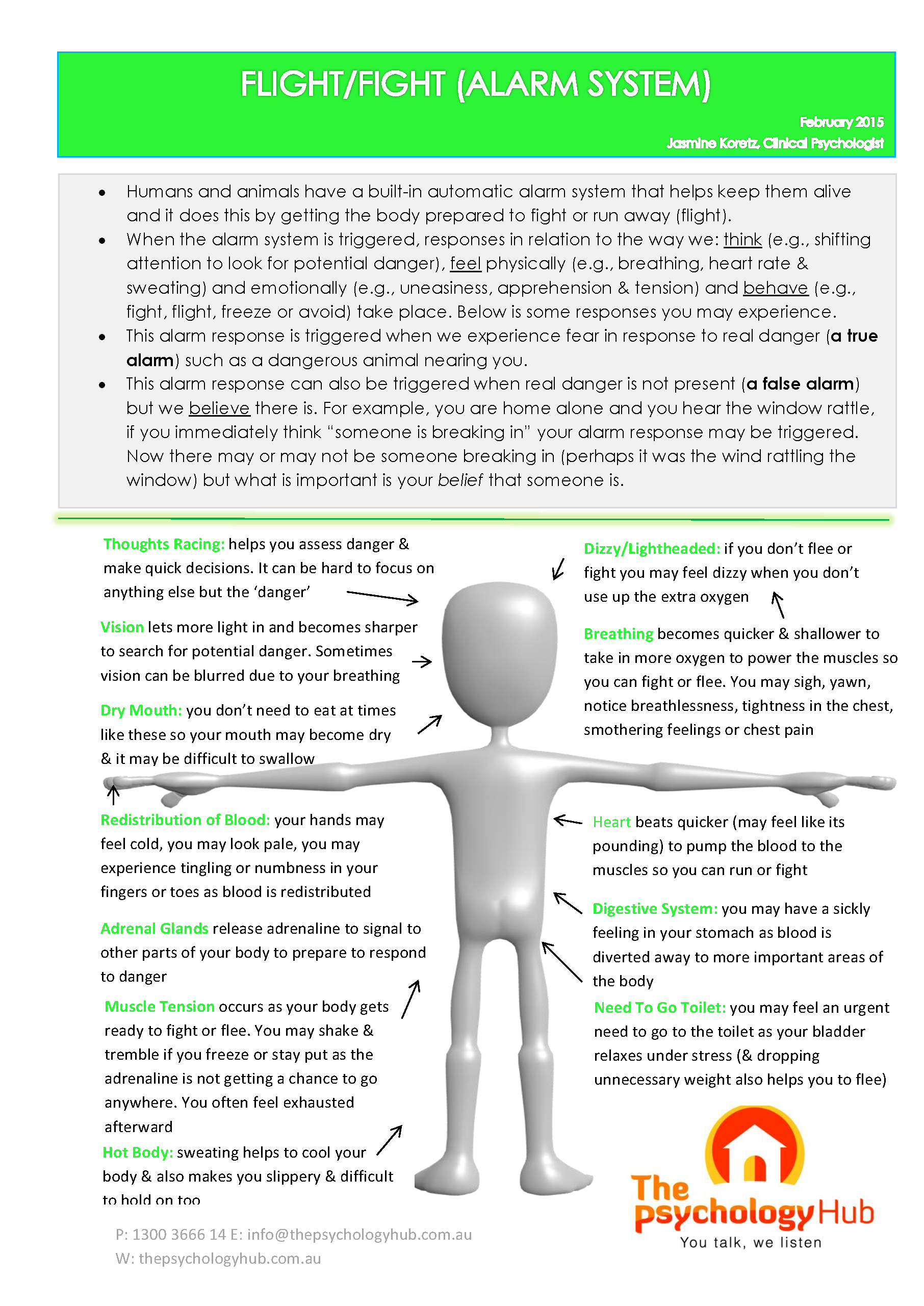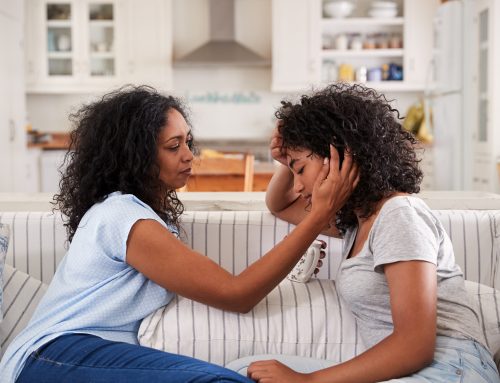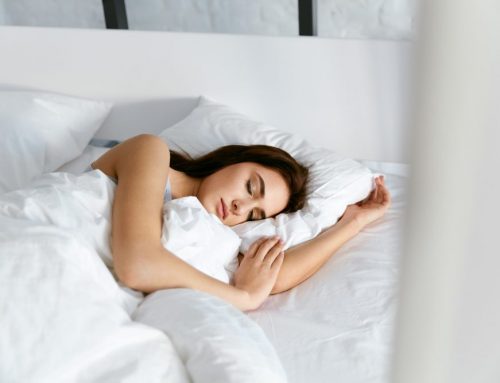- Humans and animals have a built-in automatic alarm system that helps keep them alive and it does this by getting the body prepared to fight or run away (flight).
- When the alarm system is triggered, responses in relation to the way we: think (e.g., shifting attention to look for potential danger), feel physically (e.g., breathing, heart rate & sweating) and emotionally (e.g., uneasiness, apprehension & tension) and behave (e.g., fight, flight, freeze or avoid) take place. Below is some responses you may
- This alarm response is triggered when we experience fear in response to real danger (a true alarm) such as a dangerous animal nearing
- This alarm response can also be triggered when real danger is not present (a false alarm) but we believe there is. For example, you are home alone and you hear the window rattle, if you immediately think “someone is breaking in” your alarm response may be triggered. Now there may or may not be someone breaking in (perhaps it was the wind rattling the window) but what is important is your belief that someone is.
Thoughts Racing: helps you assess danger & make quick decisions. It can be hard to focus on anything else but the ‘danger’
Vision lets more light in and becomes sharper to search for potential danger. Sometimes vision can be blurred due to your breathing
Dry Mouth: you don’t need to eat at times like these so your mouth may become dry & it may be difficult to swallow
Dizzy/Lightheaded: if you don’t flee or fight you may feel dizzy when you don’t use up the extra oxygen
Breathing becomes quicker & shallower to take in more oxygen to power the muscles so you can fight or flee. You may sigh, yawn, notice breathlessness, tightness in the chest, smothering feelings or chest pain
Redistribution of Blood: your hands may feel cold, you may look pale, you may experience tingling or numbness in your fingers or toes as blood is redistributed
Adrenal Glands release adrenaline to signal to other parts of your body to prepare to respond to danger
Muscle Tension occurs as your body gets ready to fight or flee. You may shake & tremble if you freeze or stay put as the adrenaline is not getting a chance to go anywhere. You often feel exhausted afterwards
Hot Body: sweating helps to cool your body & also makes you slippery & difficult to hold on too
Heart beats quicker (may feel like its pounding) to pump the blood to the muscles so you can run or fight
Digestive System: you may have a sickly feeling in your stomach as blood is diverted away to more important areas of the body
Need To Go Toilet: you may feel an urgent need to go to the toilet as your bladder relaxes under stress (& dropping unnecessary weight also helps you to flee)





